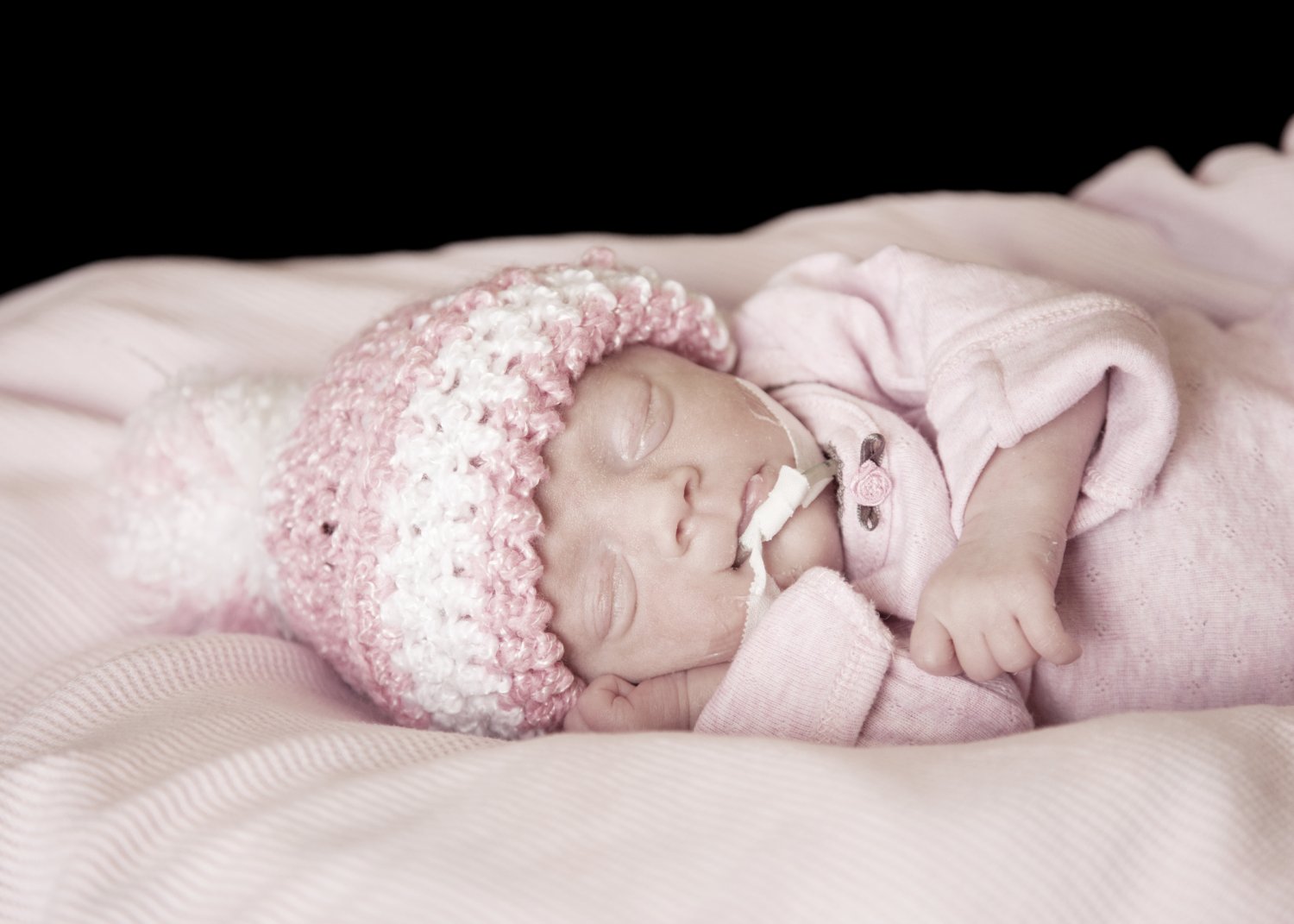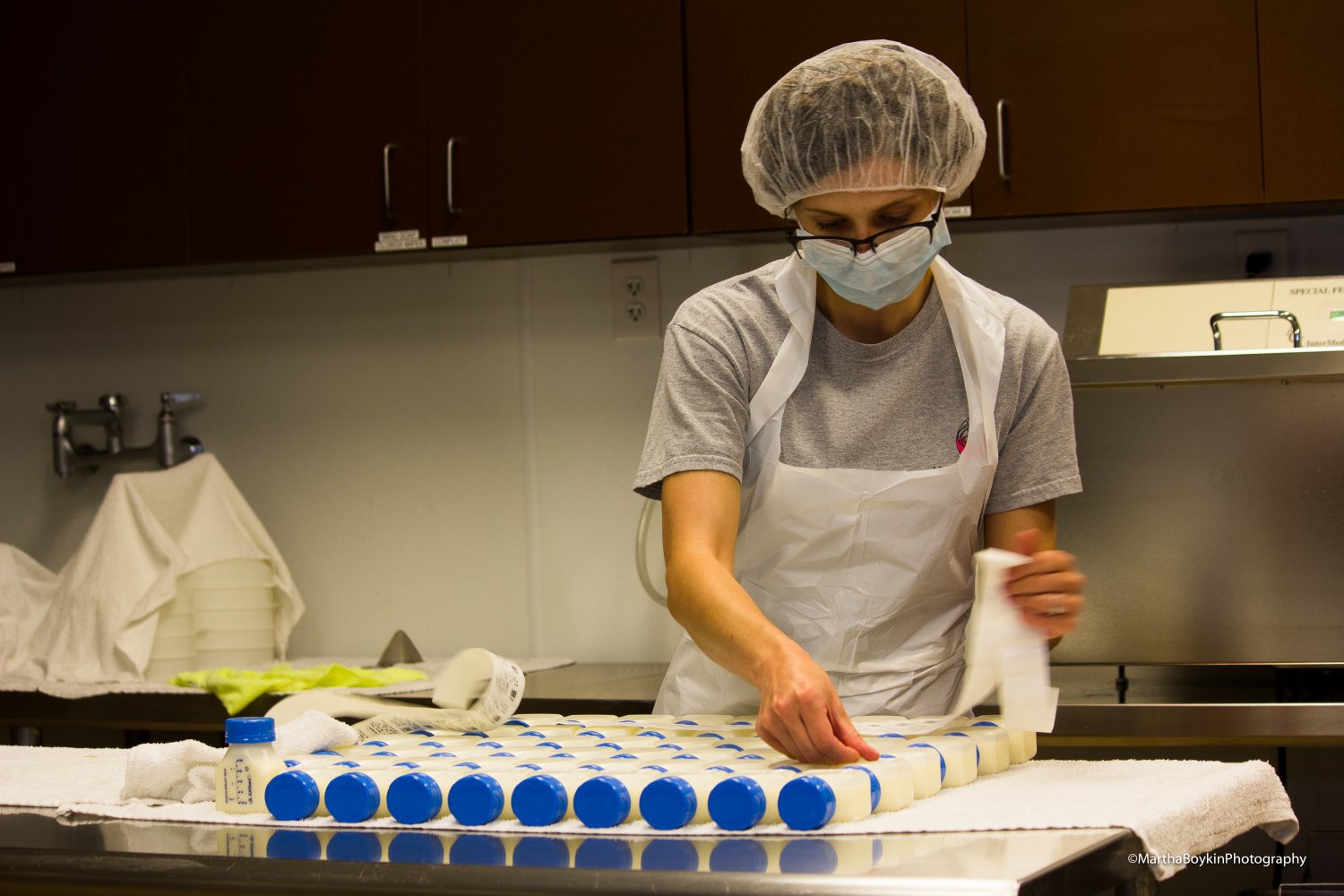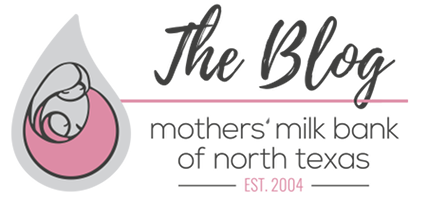Answering Your Questions, Part I: Breastmilk & Bacteria
Monday, 10/17/2016
While milk banking is a long-standing and established practice, many people have questions about it and about how a milk bank operates. For the next three weeks, we’ll re-publish articles that answer the most frequently-asked questions we receive.
Part I – Breastmilk & Bacteria
Part II – Why We Pasteurize
Part III –Milk & Money
Bacteria Benefits Healthy Babies
Milk straight from the breast is not pasteurized and naturally contains many bacteria. It is important to know that bacteria are rarely harmful to a mother’s own healthy-term newborn or even a mother’s fragile baby in the NICU. In fact, bacteria is beneficial in most circumstances. A mother and her nursing baby create a “closed-loop system” in which antibodies in her milk protect her baby from harmful organisms in her baby’s environment.
Eliminating Bacteria Ensures Safety for Preemies and Sick Infants
At Mothers’ Milk Bank of North Texas, we serve the tiniest, sickest preemies in Neonatal Intensive Care Units (NICUs), most with severely compromised immune systems. Unpasteurized milk donated from another mother can potentially have organisms that could make these babies ill. Therefore, donor milk is safely pasteurized to destroy these bacteria.
Pasteurized Donor Milk Saves Little Lives
A mother’s milk is best for her own baby. However, many mothers of preemies are unable to establish a milk supply in time for the important early feedings to begin. Donor human milk can bridge the gap for a short time until the mother’s milk supply comes in, while in other cases, babies rely exclusively on it for longer periods of time. Every case is unique, and donor human milk can be lifesaving when the mother’s own milk is not available.
Donor Milk Can Help Healthy Babies, Too
Sometimes, there is enough donor milk available to serve healthy babies if the mother’s lactation is delayed. Like any medically needy outpatient, these “elective use” outpatients require a prescription for donor milk which is written for a short term supply immediately following discharge from the hospital. Receiving donor milk can reduce the stress for these mothers, which is important while they work on their own milk production.
While every baby can benefit from human milk, it is important to appropriate donor milk where it can do the most good for the most babies. At Mothers’ Milk Bank of North Texas, we are so very grateful to the donor mothers willing to share their milk with these precious babies that have so much to lose without it.
For more information about Mothers’ Milk Bank of North Texas, click here.


